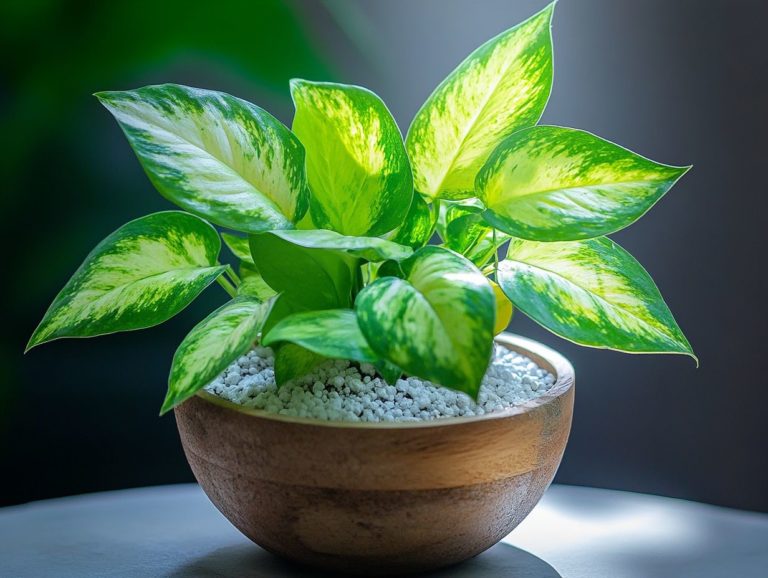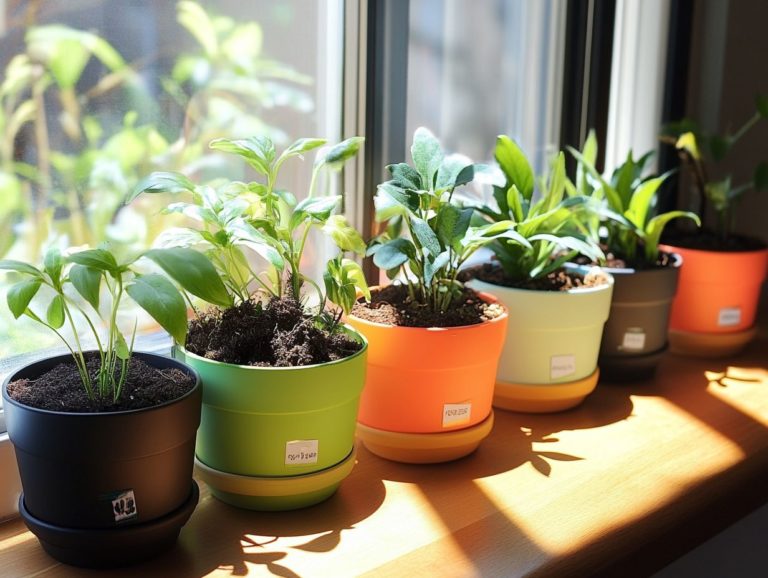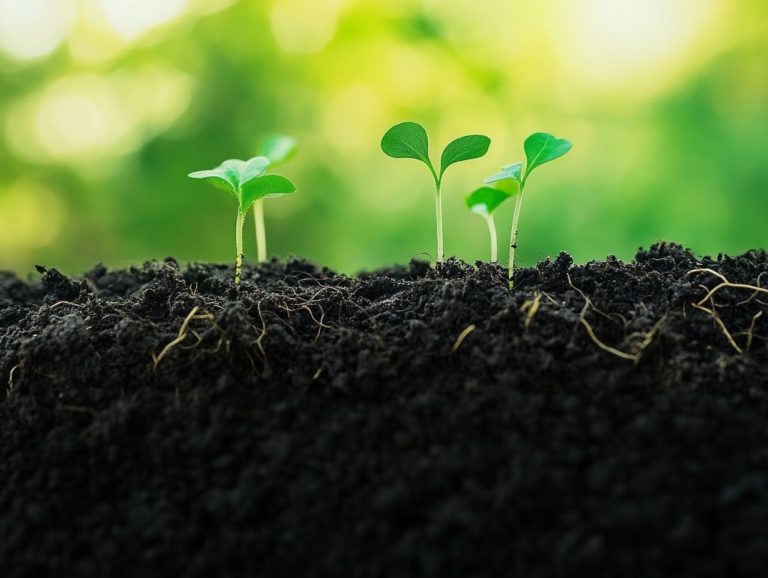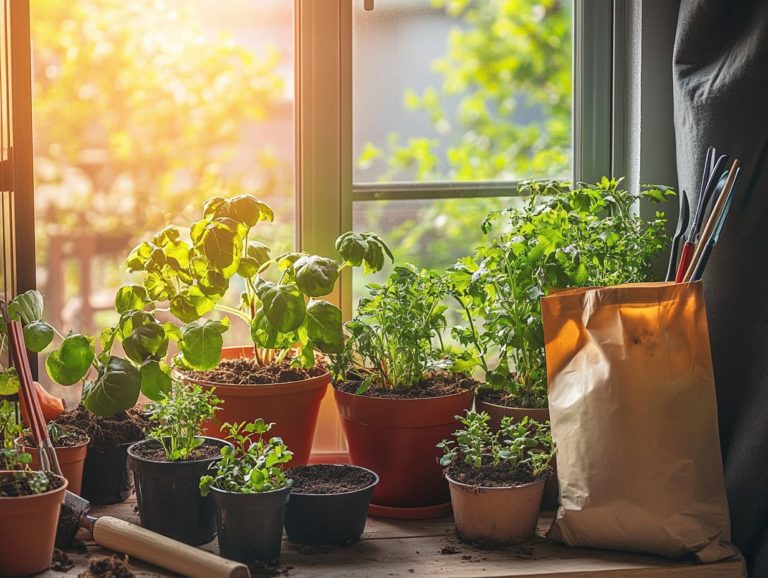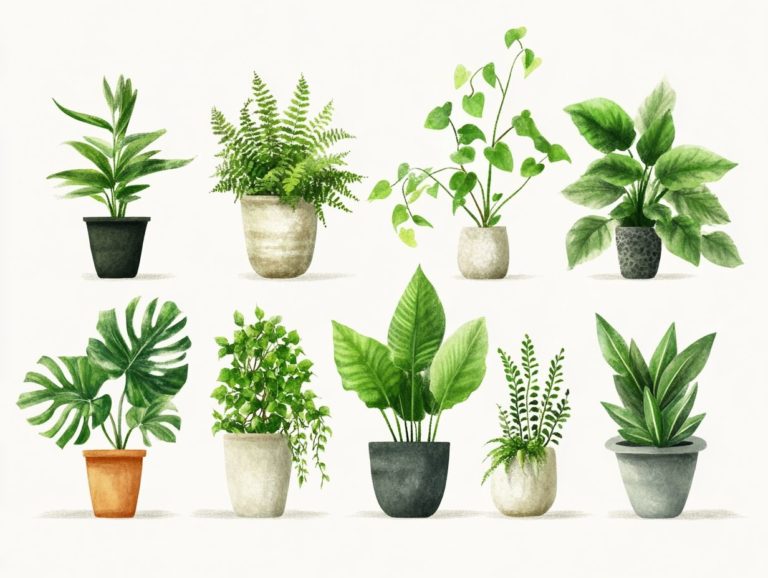How to Amend Soil with Natural Ingredients
Soil health is the cornerstone of thriving gardens and landscapes. Many gardeners underestimate its significance.
Understanding soil composition and identifying potential nutrient deficiencies are essential for nurturing robust plant growth.
Discover common natural ingredients for soil amendment! This article provides practical methods for testing and assessing your soil, along with effective techniques for incorporating these ingredients into your gardening routine.
Expect to uncover valuable tips for maintaining healthy soil to ensure your garden flourishes beautifully for years to come.
Explore the world of natural soil enrichment and elevate your gardening experience!
Contents
- Key Takeaways:
- Why Amend Soil?
- Common Natural Ingredients for Soil Amendment
- How to Test and Assess Your Soil
- Methods for Amending Soil
- Tips for Maintaining Healthy Soil
- Frequently Asked Questions
- What are some natural ingredients I can use to amend my soil?
- How do I know if my soil needs amending?
- How often should I amend my soil with natural ingredients?
- Can I use too much natural ingredients when amending my soil?
- How do I apply natural ingredients to my soil for amendment?
- Are there any natural ingredients I should avoid when amending soil?
Key Takeaways:
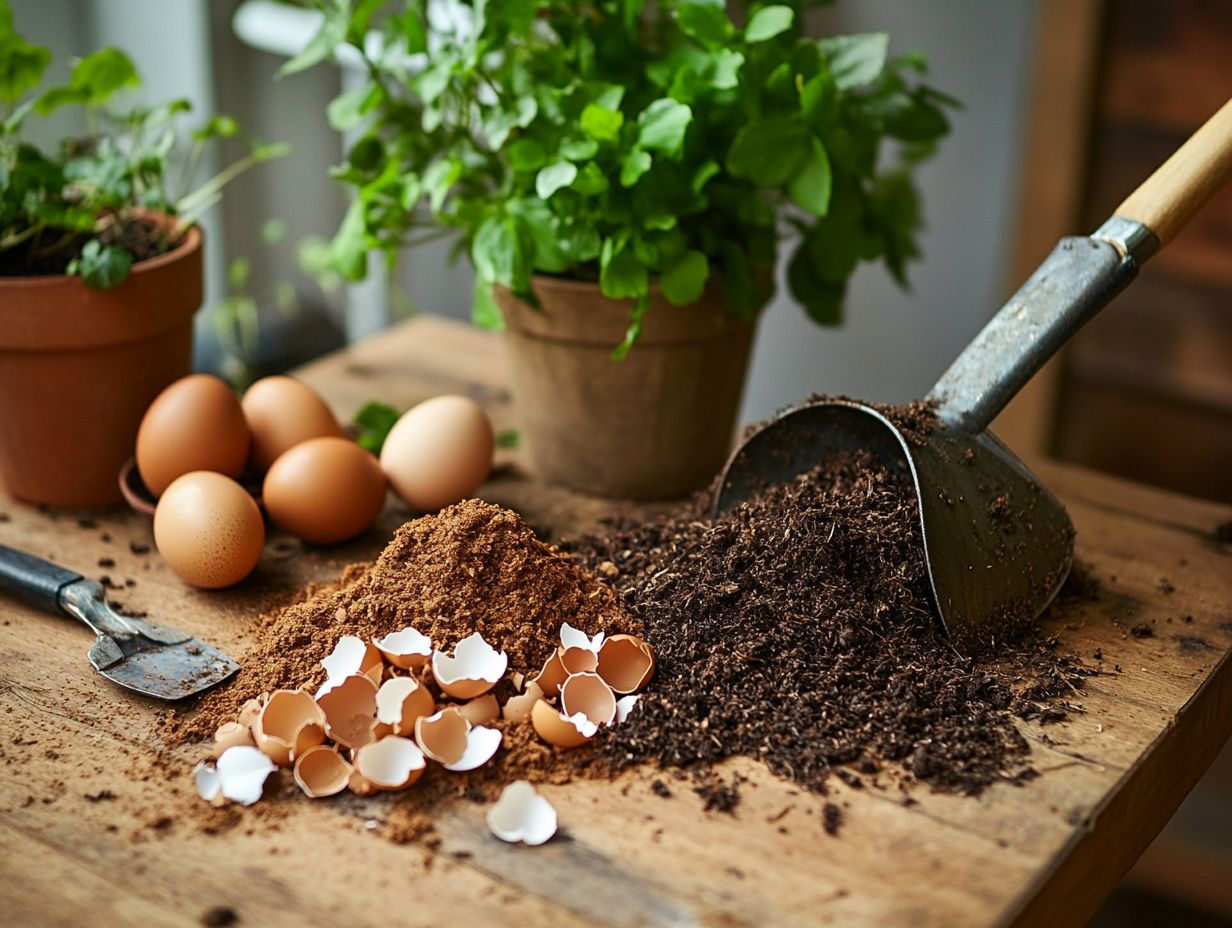
- Adding natural ingredients to soil can improve its composition and provide essential nutrients for plants to thrive.
- Organic matter, such as compost and manure, can be used as effective soil amendments to promote healthy plant growth.
- Regularly testing and assessing your soil’s pH and nutrient levels helps identify which natural ingredients are needed for amendment.
Why Amend Soil?
Amending soil is vital for improving its health, structure, and nutrient profile. This practice fosters robust plant growth and increases productivity in your garden.
By adding different materials to your soil, such as compost, manure, and organic matter, you can cultivate nutrient-rich soil that supports a diverse array of plant life while enhancing texture and fertility.
This thoughtful practice replenishes essential nutrients and promotes beneficial microbes that sustain soil health and bolster resilience against environmental stressors.
Understanding Soil Composition and Nutrient Deficiencies
Understanding soil composition and identifying nutrient deficiencies are crucial steps in optimizing your garden’s health. This ensures your plants receive the essential nutrients they need to thrive.
Explore the various components that make up soil like minerals, organic matter, air, and water. Each plays a critical role in sustaining plant life. Nutrient availability is vital for plant vitality and can fluctuate significantly based on your soil’s health.
Look out for signs like yellowing leaves or stunted growth in your plants! Recognizing common deficiencies such as nitrogen, phosphorus, and potassium can help you take action. The soil pH, which indicates the level of acidity or alkalinity, directly affects nutrient uptake.
Regularly testing and amending your soil is essential for maintaining optimum conditions for your garden.
Common Natural Ingredients for Soil Amendment
Incorporating natural ingredients into your soil amendments can dramatically enhance soil health, fertility, and structure. This creates an optimal growing environment for your plants.
Utilize organic amendments such as compost, manure, and worm castings, alongside mineral-based options like azomite and dolomitic limestone. These enrich your soil with essential nutrients while improving its overall texture and microbial activity.
These natural components supply vital macronutrients like nitrogen, phosphorus, and potassium. They also foster long-term sustainability and productivity in your garden.
Start amending your soil today to create a thriving garden!
Types of Organic Matter and Their Uses
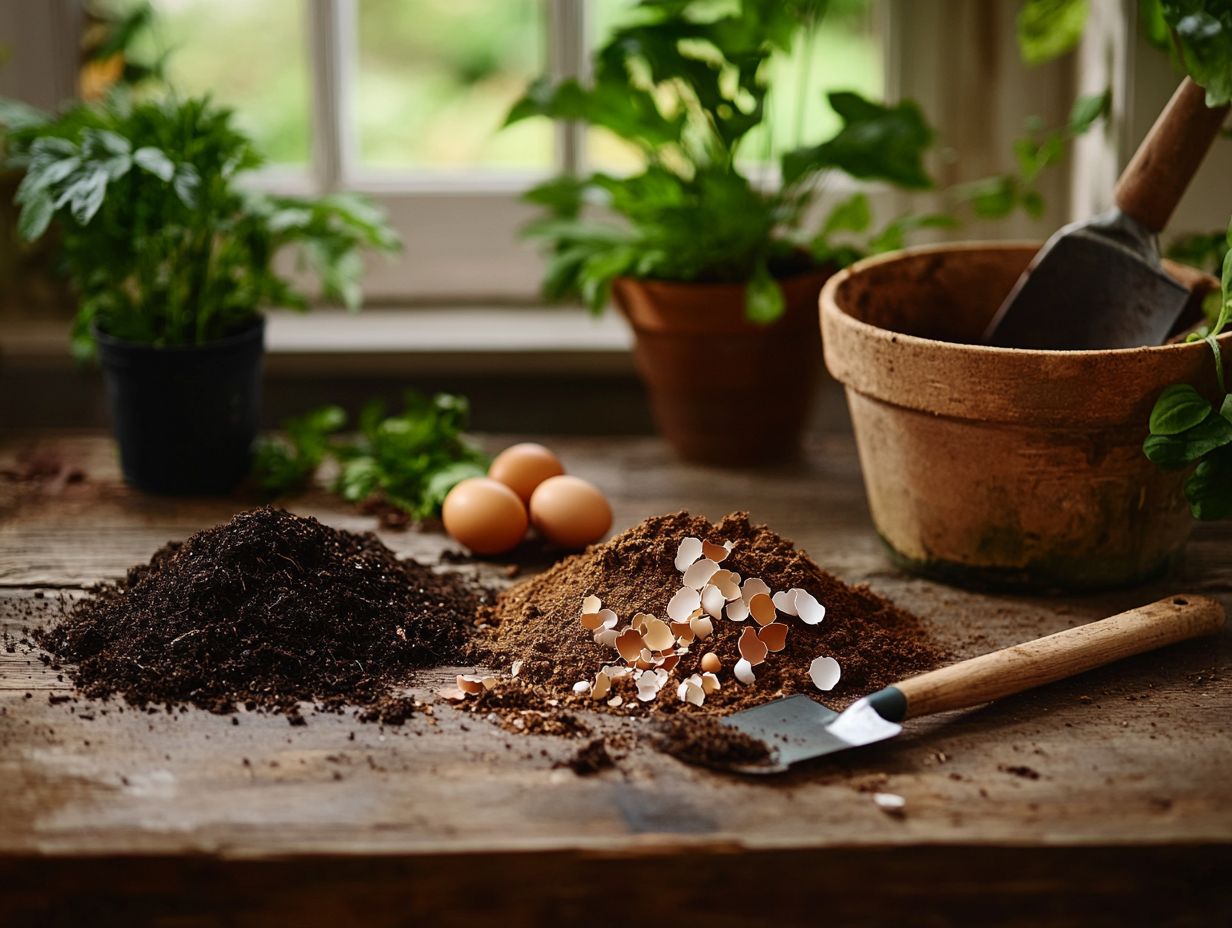
You can use different types of organic matter to improve your soil quality. Each type offers unique benefits for managing nutrients in your garden.
Take compost, for example. This rich blend of decomposed organic materials enhances soil structure and boosts microbial activity, ensuring that nutrients become readily available to your plants.
Manure, often sourced from livestock, delivers essential nitrogen, phosphorus, and potassium key players in fostering healthy plant growth.
Then there’s leaf mold, made up of decayed leaves, which aids in moisture retention and improves soil aeration. Biochar is a substance made from burning organic waste. It helps retain nutrients and water in the soil.
Together, these organic amendments work wonders. They improve soil texture and create a thriving environment for robust plant growth and resilience.
How to Test and Assess Your Soil
Testing and assessing your soil is essential for understanding its fertility. This helps identify the specific nutrient requirements for the plants in your garden or agricultural landscape.
By conducting a soil test, you can evaluate key factors such as soil pH, nutrient levels, and overall fertility. This process yields valuable insights that inform necessary amendments and management strategies.
Regular soil assessments enhance plant health and promote more sustainable agricultural practices, ultimately leading to a thriving garden or farm.
Methods for Determining Soil pH and Nutrient Levels
You have a variety of methods at your disposal for determining soil pH and nutrient levels. These range from simple home kits to comprehensive laboratory analyses.
Each approach presents its unique set of advantages and disadvantages, enabling you to customize your strategy based on your specific needs and budget. Home test kits offer an easy and affordable way to assess your soil conditions quickly.
However, they often fall short in precision compared to professional services. Conversely, lab analyses provide detailed insights into nutrient profiles and soil composition. This enables you to make more informed gardening decisions.
While these tests can be costly and time-consuming potentially deterring casual gardeners understanding the nuances of these testing methods equips you to cultivate healthier plants and achieve richer yields.
Methods for Amending Soil
Exploring methods for amending soil helps you incorporate natural ingredients effectively. This enhances its structure, fertility, and overall health.
Techniques like mixing compost, manure, and biochar into the soil profile can optimize nutrient availability. Top-dressing with gypsum and other amendments also improves soil texture.
By understanding these methods, you ensure that your plants receive the balanced nutrition they need for robust growth.
Incorporating Natural Ingredients into Soil
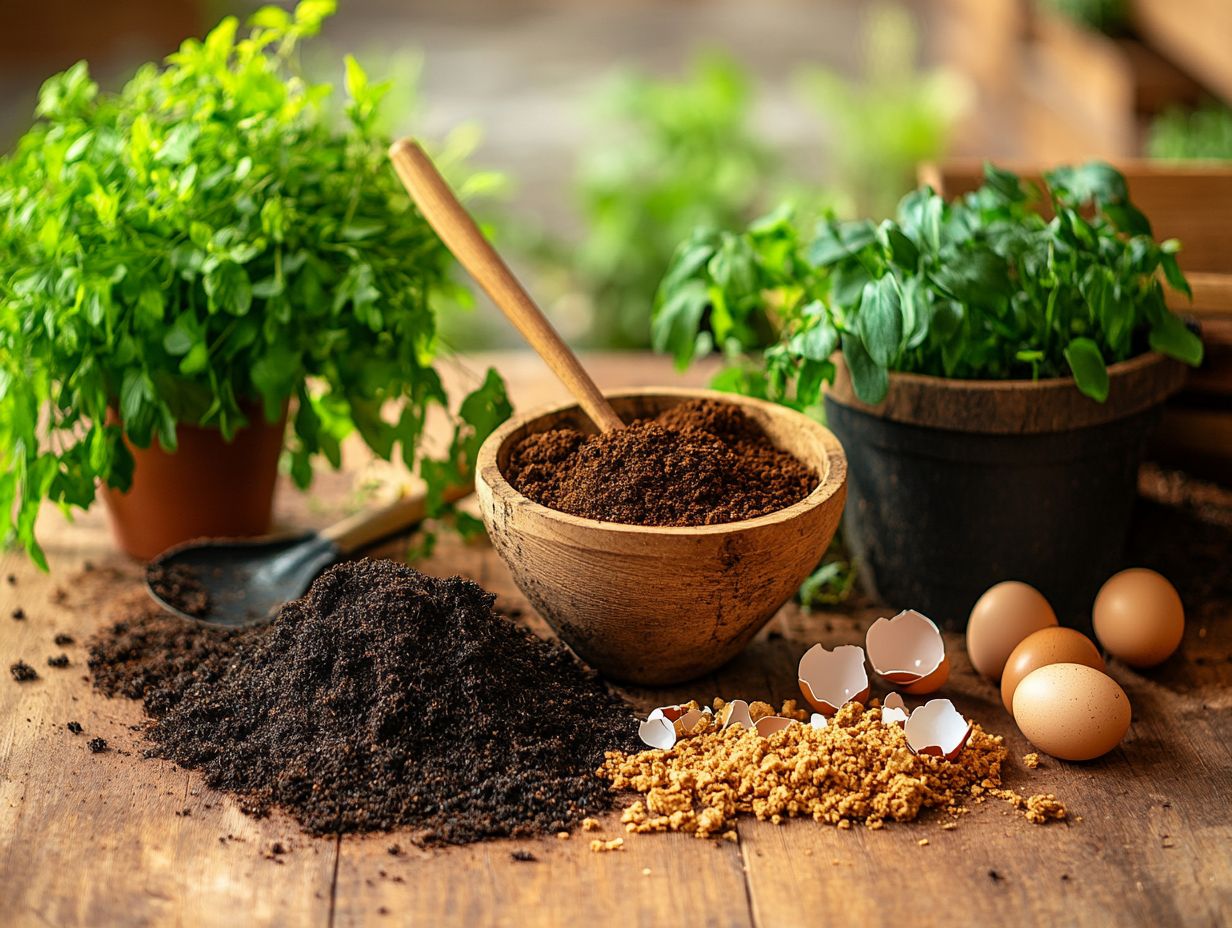
Incorporating natural ingredients into your soil is essential for crafting a balanced and nutrient-rich environment where plants can truly thrive.
By utilizing techniques such as layering compost, applying organic manure, and introducing biochar, you can significantly enhance your soil health.
Timing plays a critical role. For example, applying compost in the fall allows nutrients to integrate beautifully during the winter months. Spreading manure in early spring sets the stage just right before planting.
Regular maintenance is crucial. Monitor soil moisture to keep your amendments effective and prevent them from decomposing or compacting too much.
By following these best practices, you can transform your soil health today for happier, thriving plants!
Tips for Maintaining Healthy Soil
Maintaining healthy soil requires continuous attention and practices that enhance soil health, fertility, and beneficial microbial activity.
Implement strategies like using cover crops plants grown to cover the soil rather than for harvesting regularly adding organic matter, and minimizing soil disturbance to preserve the vital structure and nutrient availability of your soil.
These practices ensure long-term productivity and resilience in your growing environments.
Practices for Long-Term Soil Health
Adopting long-term soil health practices is key to a thriving garden that remains resilient against environmental stressors.
Embracing sustainable methods enhances the soil’s structure and fertility while cultivating a vibrant ecosystem just below the surface. By adding organic matter like compost or aged manure, you can significantly boost the soil’s nutrient profile, providing essential minerals that your plants need.
Crop rotation is a powerful tool in your gardening arsenal, breaking pest cycles and minimizing nutrient depletion while encouraging a diverse array of crops to flourish.
Cover crops enrich the soil further, combating erosion and promoting microbial activity vital for nutrient cycling. Together, these interventions establish a solid foundation for a garden that withstands challenges and embraces change with grace.
Frequently Asked Questions
What are some natural ingredients I can use to amend my soil?
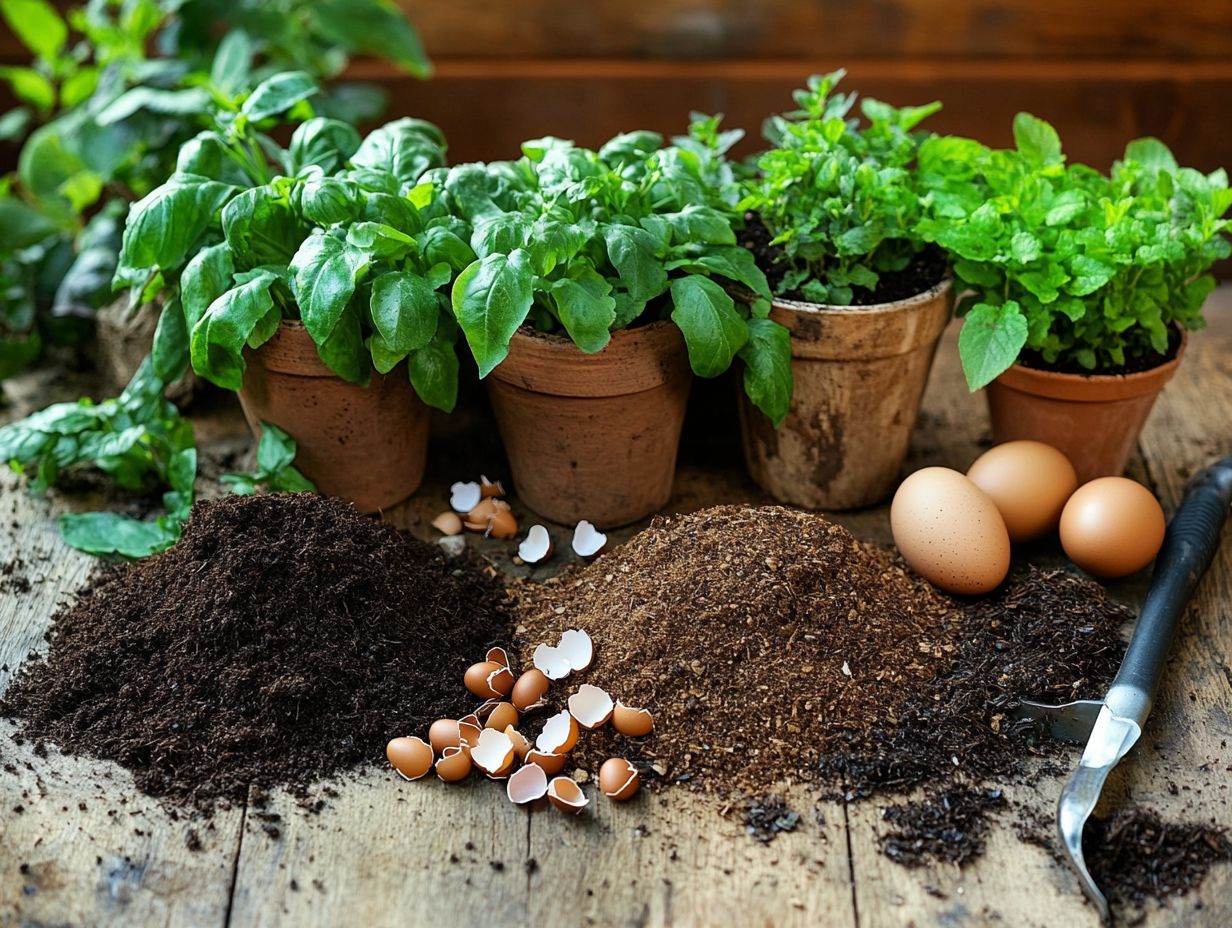
Some natural ingredients you can use to amend your soil include compost, manure, mulch, bone meal, and fish emulsion.
How do I know if my soil needs amending?
Test your soil’s pH and nutrient levels to determine if it needs amendments. Also, observe the health and growth of your plants as indicators of soil health. A soil test provides essential insights.
How often should I amend my soil with natural ingredients?
Your soil’s health and quality determine how often you should amend it. Generally, it’s recommended to amend your soil at least once a year, but you may need to do this more frequently if your soil is lacking in nutrients.
Can I use too much natural ingredients when amending my soil?
Yes, over-amending with natural ingredients can lead to nutrient imbalances and harm the beneficial microorganisms in the soil. It’s important to follow recommended guidelines and avoid overdoing it.
How do I apply natural ingredients to my soil for amendment?
There are several ways to apply natural ingredients to your soil. You can mix them into the top layer of soil, add them to the planting hole when transplanting, or use them as a top dressing around existing plants. Popular options include compost, worm castings (the nutrient-rich excrement of earthworms), and leaf mold (decomposed leaves).
Are there any natural ingredients I should avoid when amending soil?
Avoid using fresh manure unless it has been properly aged or composted. If not, it can harm your plants.
Also, steer clear of any natural ingredients that may contain harmful chemicals or toxins.
Instead, consider mineral-based amendments like gypsum, dolomitic limestone, and azomite for better soil quality!

